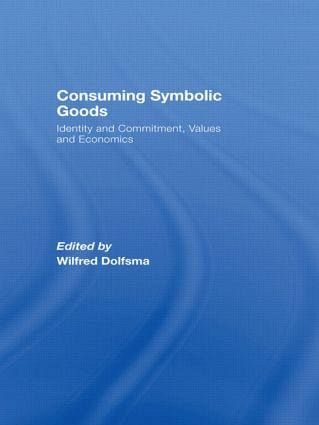
Consuming Symbolic Goods
Identity and Commitment, Values and Economics
Herausgeber: Dolfsma, Wilfred

PAYBACK Punkte
30 °P sammeln!
The phenomenon of consumption has increasingly drawn attention from economists. While the 'sole purpose of production is consumption', as Adam Smith has claimed, economists have up to recently generally ignored the topic. This book brings together a range of different perspectives on the topic of consumption that will finally shed the necessary light on a largely neglected theme, such as Why is the consumption of symbolic goods different than that of goods that are not constitutive of individuals' identity? How does the consumption of symbolic goods affect social processes and economic phenome...
The phenomenon of consumption has increasingly drawn attention from economists. While the 'sole purpose of production is consumption', as Adam Smith has claimed, economists have up to recently generally ignored the topic. This book brings together a range of different perspectives on the topic of consumption that will finally shed the necessary light on a largely neglected theme, such as Why is the consumption of symbolic goods different than that of goods that are not constitutive of individuals' identity? How does the consumption of symbolic goods affect social processes and economic phenomena? Will taking consumption (of symbolic goods) seriously impact economics itself? The book discusses these issues theoretically, and, through analyses of such cases as food, religion, fashion, empirically as well. It also discusses the possible role in the future of consumption. This book was previously published as a special issue of Review of Social Economy














